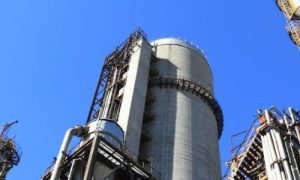Vestas to test Sustainable Aviation Fuel at Baltic Eagle Wind Farm in Baltic Sea

Vestas is testing Sustainable Aviation Fuel (SAF) at the Baltic Eagle Wind Farm in the Baltic Sea throughout 2024. Helicopters powered by 40% SAF will transport technicians and crew to the wind farm, reducing CO2 emissions by 32% per flight. The pilot project, in collaboration with HeliService and DCC & Shell Aviation Denmark, aims to evaluate SAF’s impact and explore its potential for offshore wind farm operations. This initiative aligns with Vestas’ sustainability strategy, targeting carbon neutrality by 2030 and a 45% reduction in supply chain emissions per MWh generated.
Vestas is set to test Sustainable Aviation Fuel (SAF) at the Baltic Eagle Wind Farm in the Baltic Sea throughout 2024. This pilot project involves Vestas technicians and crew from a jack-up vessel using helicopters powered partly by SAF to travel to and from the wind farm, where 50 offshore wind turbines are being constructed.
SAF is made from bio-waste materials like used cooking oil or tallow, and it can significantly reduce lifecycle greenhouse gas emissions related to air travel, making it a more sustainable alternative to traditional jet fuel. Kieran Walsh, senior vice president and head of construction at Vestas Northern & Central Europe, stated, “This initiative is part of our ongoing sustainability strategy. There is a strong need for more sustainable solutions during the construction and operation of wind farms. The potential for using SAF in offshore operations is substantial, and we are excited to explore this further.”
The pilot project will run until September 2024. Helicopter service provider HeliService will operate helicopters from Leonardo S.p.A., utilizing approximately 40 percent SAF supplied by DCC & Shell Aviation Denmark A/S. This blend rate is among the highest currently allowed, marking the first time SAF-fueled helicopters with such a high blend are used throughout a construction phase at an offshore wind farm. It is anticipated that this will result in around 32 percent CO2 savings per flight compared to conventional jet fuel helicopters. Vestas plans to evaluate the impact of the SAF after the pilot project concludes.
This initiative aligns with Vestas’ sustainability strategy, which aims for carbon neutrality in its operations by 2030 and a 45 percent reduction in emissions per MWh generated within its supply chain. Sune Petersen, head of strategy and sustainability at DCC and Shell Aviation Denmark, remarked, “The delivery of SAF to Roskilde Airport, which will serve as a helicopter base for this project, represents a key milestone in our efforts to meet the rising demand for alternatives to traditional jet fuel. It also serves as an initial step towards integrating SAF into helicopter fuel services, not just in Denmark, but across Europe.”
Source Link : https://bioenergytimes.com/vestas-to-test-sustainable-aviation-fuel-at-baltic-eagle-wind-farm-in-baltic-sea/















